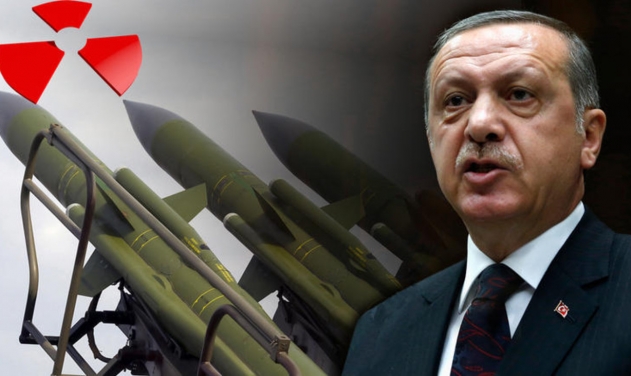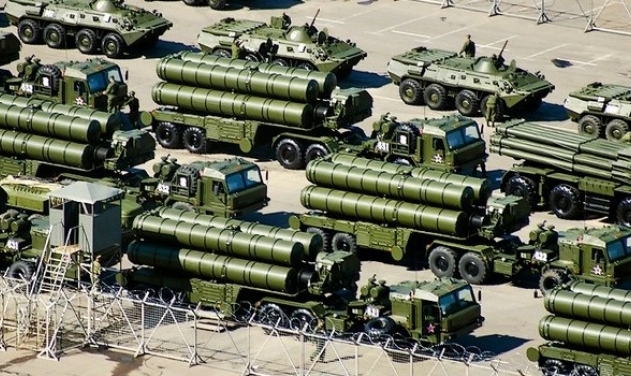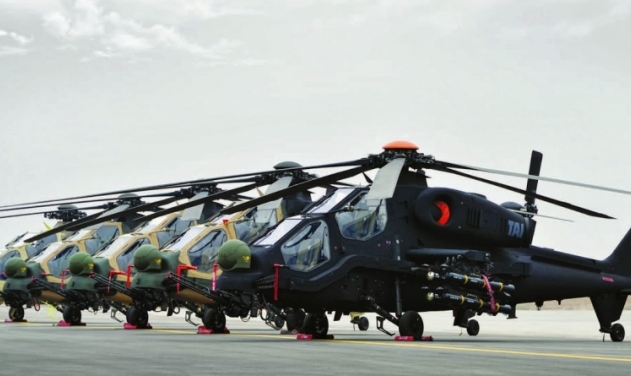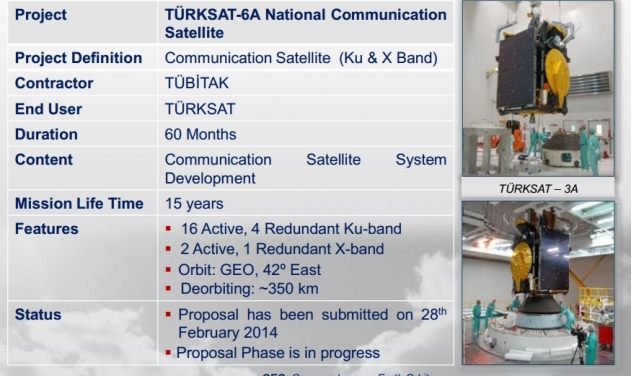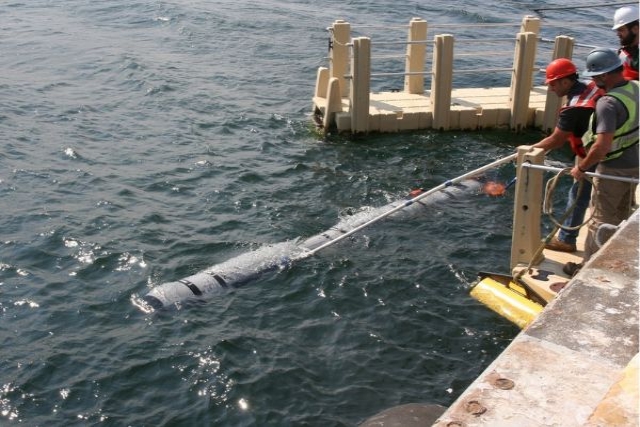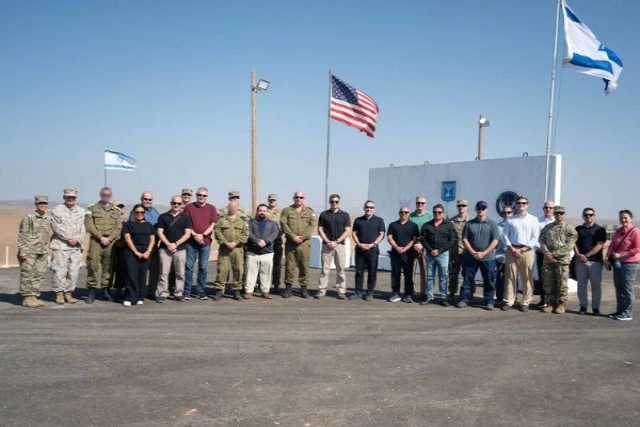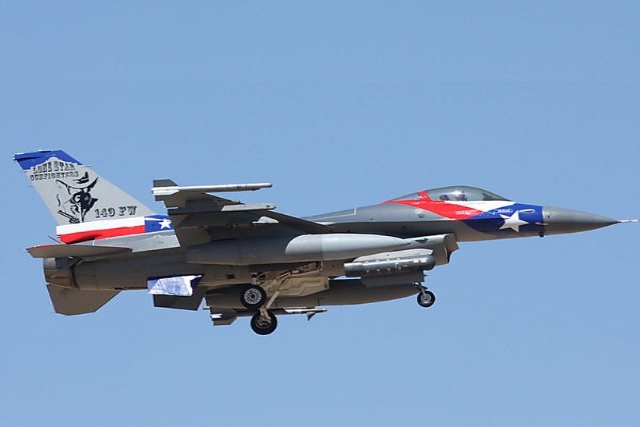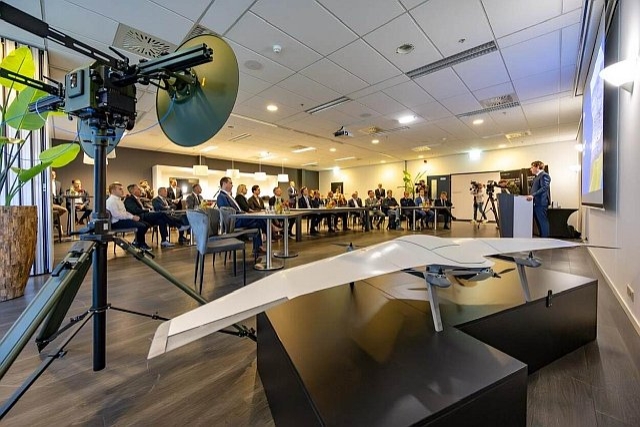Russia Courts Turkey For Defense Sales
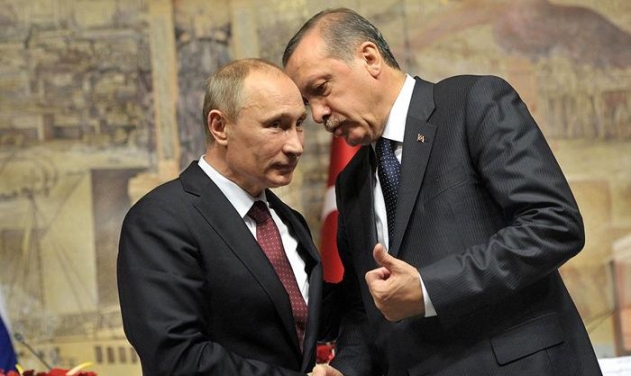
Russian Rosoboronexport has expressed its desire to renew full-fledged military and technical cooperation with Turkey.
The Russian arms exporting agency is participating in the IDEF exhibition in Turkey from May 9-12 this year with an array of defence equipment which it is hoping Ankara will buy given its increasingly strained relationship with the west.
“Turkey is one of Rosoboronexport’s crucial partners. We are in consultations on a number of the most promising defense projects of mutual benefit. Ankara is particularly interested in Russian AD systems of various ranges, active and passive tank protection equipment, as well as small arms and ammunition for them, and special gear for the Ministries of National Defense and Interior,” Rosoboronexport’s CEO Alexander Mikheev said in a statement Friday.
Once considered a threat to Turkey, Russia is now more of a friend. The strained relationship between the countries after Turkey shot down a Russian Su-24 military jet in November 2015 followed by sanctions from Moscow on Ankara, changed in July 2016 after a failed military coup on Turkish President Recep Tayyip Erdogan.
Russian army’s sophisticated command post in Syria had reportedly intercepted sensitive exchanges and encoded radio messages of the Turkish army from which it learnt of the coup attempt against the President in Ankara. The Russian intel agency is said to have passed on the information to Turkey's National Intelligence Organization which is claimed to have saved Erdogan’s life.
Erdogan drew strong criticism from the US and other NATO allies for a sweeping crackdown on all alleged opponents following the coup. Turkey on the other hand heaped praise on Russia for its support. The worsening relations between Turkey and NATO allies, gave Ankara greater incentive to pursue cooperation with Russia.
Even before the coup attempt, Turkey’s mounting difficulties were working to Russia’s benefit. Erdogan offered apologies and regret for the downing of the fighter that had violated Turkish air space in late July 2016. Following the apology, the Russian and Turkish governments began trying to find a way forward on the Syrian conflict, while Russia was beginning to roll back sanctions.
Turkey received “unconditional support” from Russia over the coup attempt, Turkish Foreign Minister Mevlut Cavusoglu said in an interview to Haberturk TV on 25 July 2016. He also said anti-US sentiment is rising in the country after the failed revolt.
"It seems to us that NATO members behave in an evasive fashion on issues such as the exchange of technology and joint investments. Turkey intends to develop its own defense industry and strengthen its defense system,” Cavusoglu lashed out at NATO saying the alliance is not fully cooperating with Ankara in August 2016 in an interview with Sputnik. He hinted that Turkey would consider military cooperation with Russia.
Cavusoglu also criticized Turkey's NATO allies over their lack of willingness to share know-how on missile defense systems: "Our allies neither transfer the crucial know-how, nor allow us to import such weapons from other countries. This is unacceptable."
The deterioration of Turkey’s relations with NATO has forced to look east at Russian weapons, particularly their good showing in the Syrian conflict. Turkey is currently in talks to finalize a deal with Russia for the procurement of the S-400 defense system, the sale of which was agreed upon during Erdoğan's most recent visit to Moscow earlier this month.
"This move signals a very strong political message to the United States and NATO. If they don't show Turkey respect, it will strengthen its ties with Russia," Ruslan Puhov, the head of the Strategic Analysis Center was quoted as saying by Yenisafak news daily Wednesday. "Arms are not always bought to be used on the battlefield. Meanwhile, this deal will strengthen Turkey's defenses, which are currently reliant on an older missile defense system. This deal will provide Turkey with a state-of-the-art missile defense system technology." Puhov said.
Turkey has no plans to integrate Russian-made S-400 long-range antiaircraft missile systems into the NATO structure, if they are purchased, Turkish Defense Minister Fikri Isik was quoted as saying by TV Channel Haber 7 on Thursday. "The complexes that will be purchased won’t be integrated into the NATO system," Fikri said.
